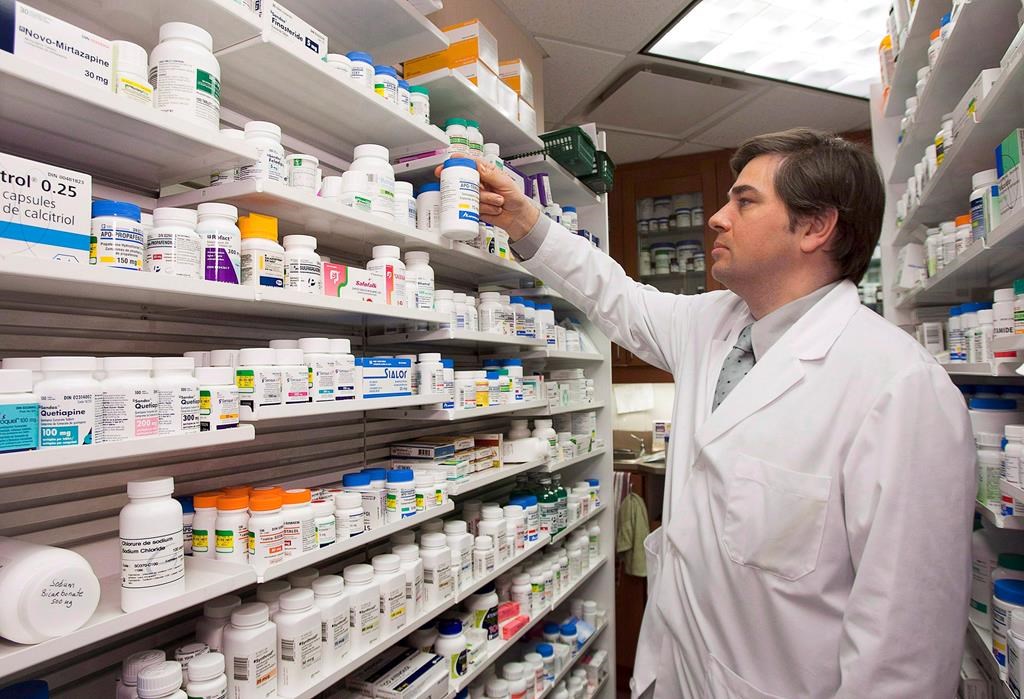When many people get sick, the first person they turn to before a doctor may be their local pharmacist. That means pharmacists are often on the front lines of the novel coronavirus pandemic alongside health-care professionals working in hospitals.

But pharmacist Tamara Begin, who works at a Pharmaprix, told Global News Morning that many of her colleagues in Quebec say they aren’t being recognized for the role they’re playing in the crisis or the pressure they’re under.
“During this crisis, I think pharmacists have really taken on a role as the most accessible health-care professional,” she said.
“We’ve been dealing with people who are nervous and afraid to not have enough medication, so we’re trying to manage the supply of medication so that we don’t end up with a shortage,” she said.
“We’ve been stepping in to fill the gap for other health professionals that are not currently available for their patients because, unfortunately, even during a pandemic, people’s normal health-care issues continue, and someone needs to step in to fill that gap to make sure that people get the care they need.”
Begin said many pharmacists feel they “fall through the gap” and miss the recognition they deserve from the government.
Retail pharmacists like Begin don’t work for the government but, rather, are employed by private firms.
- Naloxone-resistant street drug linked to 9 deaths in Eastern Canada seized in Alberta
- ‘She gets to be 10’: Ontario child’s heart donated to girl the same age
- Buzz kill? Gen Z less interested in coffee than older Canadians, survey shows
- Bird flu risk to humans an ‘enormous concern,’ WHO says. Here’s what to know
“Sometimes, we’re seen more as not-as-real health-care professionals” compared to doctors and nurses, Begin said, adding that, in fact: “We are the foundation of the health-care system right now for the community.”
Because pharmacists do not work for the government, Begin says they often do not receive the same level of support as workers in Quebec’s hospital networks. That can be problematic, she explains, when it comes to ensuring they, too, receive priority testing for the novel coronavirus that causes COVID-19.
“Nurses and doctors that are working in hospitals to take care of patients are obviously critically important,” she said. “But if we get sick and if we can’t serve our customers, then everything will start to fall apart.
That could mean the entire pharmacy would need to be closed — something Begin said would be catastrophic for fighting the pandemic.
Begin had praise for both her professional order and the province for being quick to respond to pharmacists’ concerns.
“When pharmacists are raising our concerns, they are being heard, and actions are being taken,” she said.
For example, the province is currently working with the Ordre des pharmaciens du Québec to ensure pharmacists become eligible for access to priority testing alongside other front-line health-care workers.
“I don’t want to complain,” she said. “It’s an evolving situation, and we just want to be seen like other health professionals.”





Comments